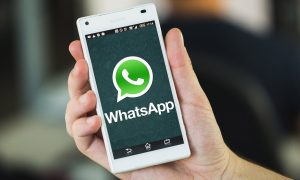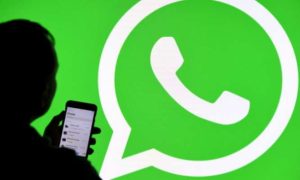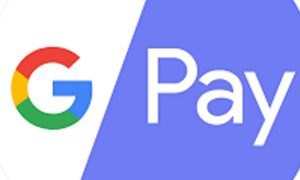Official sources said only calling part may be brought under regulation as the messaging part has already been dealt with in the new intermediary guidelines, which require messaging platforms like WhatsApp to trace the first originator of mischievous messages.
The government is contemplating bringing under regulation the call services part of apps such as WhatsApp, Skype, Facetime and Viber, etc, while leaving the messaging part to be covered under the intermediary rules, which came into force from May 26.
In essence what this means is that the messaging part of such apps will not be brought under any regulatory framework, but the companies will need to take licence from the government for providing local or national long distance (NLD) calls.
What needs to be seen is how such a segregation between calling and messaging services will be done. Under the licensing framework, such firms need to provide legal interception of calls to security agencies, which currently applies to telecom operators. They would also need to pay an annual licence fee to the government.
To work out such a regulatory framework, the department of telecommunications (DoT) has fallen back on a 2015 report by a panel appointed by it, which had suggested such a measure. The recommendation then was in the context of net neutrality to bring about a level play field between the telecom operators and over-the-top players. The telcos had then and even today bat for OTTs to be brought under regulation. Their stand has been that there should be one-service-one rule – they asked why should they be made to pay licence fee to the government and be saddled with a host of regulations while the apps are free to ride on their networks without paying any licence fee and be free from any kind of regulations?
Read More ; Delhi Lockdown: Unlock Process Begins in Delhi, These New Guidelines Come Into Force From Today
The discussions regarding such a regulatory framework for apps come at a time when the government and a major messaging/calling app, WhatsApp, are at loggerheads over the issue of tracing the originator of what is deemed as mischievous messages by the government. As is known, the government brought in force the rule mandating traceability of such messages from May 26 and WhatsApp has challenged it in the Delhi High Court.
Official sources said only calling part may be brought under regulation as the messaging part has already been dealt with in the new intermediary guidelines, which require messaging platforms like WhatsApp to trace the first originator of mischievous messages.
The DoT has not yet decided whether recommendations of the Telecom Regulatory Authority of India (Trai) would be sought in the matter or not. The reason being that Trai in September 2020 had recommended to the government that OTT players like Facebook, WhatsApp, Google, Viber, and Telegram need not be brought under any form of regulatory framework and market developments should be monitored. If required, an intervention can be made at an appropriate time, it had said.
The DoT feels that it has the option to refer the matter once again to the Trai with some added references, or reject Trai’s September 2020 recommendations and come out with a policy decision in favour of partial regulation. In matters of policy, Trai’s role is recommendatory and the government’s view is final.



































